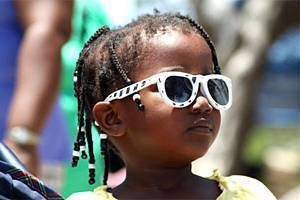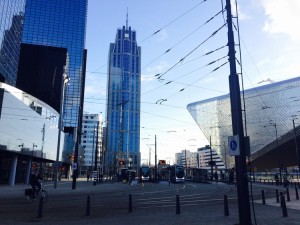Sean Coughlan ~ Are Cities The New Countries?
Do big cities have more in common with each other than with the rest of their own countries?
Are there meaningful comparisons between cities such as New York, London and Shanghai, rather than between nation states?
That is the suggestion of the Organisation for Economic Co-operation and Development (OECD).
Such mega-conurbations have bigger populations and economies than many individual countries – and the think tank argues that they face many similar challenges, whether it is in transport, housing, security, jobs, migration or education.
In a report on global trends shaping education, the OECD says cities could learn from each other’s experiences, in a way that would be impossible at the level of national politics.
Read more: http://www.bbc.com/news/education
Bonus Chapter 2016 – 2 ~ Frequently Asked Questions About Distance Workers
Introduction
It may seem slightly absurd, but most questions about distance workers have a history already. These questions have come forward with regard to the pattern of generations, in particular its dynamics and its structure. In bonus-chapter 2016-1, already a number of major developments related to distance workers have been discussed, focusing on their past and future. In this bonus-chapter we will deal with four sets of FAQ’s.
First: are distance workers a new phenomenon or have distance workers a long history already?
Second: what is the impact of major events in society on cohorts, in particular cohorts of distance workers?
Third: which strategies have an impact upon distance workers?
Fourth: what is the impact of the analysis of distance workers on the sociology of generations?
The history of distance workers
Which early examples demand our attention? Instructions by letter have been launched frequently in the past.
Which examples in the recent past are at stake? Each time an innovation in systems of communication has occurred this innovation has changed the roles of distance workers. Take the emergence of internet and video conferencing.
Is an example available? Take the course presented by video conference from Utrecht to South-Africa described in the previous bonus-chapter. This video conference took place twenty years ago.
Distance workers can get engaged in more than one occupation. For instance they can act as a financial expert and combine this occupation with teaching or coaching.
The impact of major events on behavior in cohorts
How does a new generation emerge in society? A new generation in society comes into existence as soon as a major event has taken place. Or a set of interrelated events has occured.
As soon as a new generation has emerged, it moves on in time. Compare this with processes in the body of a Python that has swallowed a rabbit. Slowly the rabbit moves on in the body of the snake. The body of the rabbit slinks. After some time another rabbit will be swallowed.
Which major events have occurred recently that have triggered the emergence of a new generation? For an answer to this question we have to look at cohorts whose members have experienced in their formative period the drastic rise of ICT. We are looking at cohorts that have been born approximately after 1985. New innovations in ICT result in changes in the pattern of generations. In the book ‘Generations of Lucky Devils and Unlucky Dogs’ statistics showing the development of intelligence and memory capacity during the formative period have been presented.
The impact of the pattern of generations on behavior in cohorts.
Which impacts on the stream of economic refugees have to be taken into consideration? In the stream of economic refugees young males dominate. If a developed country wants to admit members of this category, it is free to do so. If a developing country wants to avoid the immigration of a member of this category, the country can refuse admittance and advise the economic refugee to return to the developing country and take the role of a distance worker. Availability of this role provides the country refusing admittance moral arguments for the refusal.
Which impacts on the stream of political refugees have to be taken into consideration? International rules oblige a developing country to admit refugees that come from a discriminating country. However, these rules permit the developed country to send a political refugee to another developed country. For example to Turkey, which country has been promised by the European Union 3 milliard Euro for financing this kind of hospitality. Turkey does not permit political refugees to participate in its labor force. It is to be expected that Turkey will organize its hospitality in a restricted sense. As a consequence, these political refugees will try to return to their home country as soon as possible. Also, other countries like Turkey will come forward to offers political refugees a protected area. In politically discriminating countries, protected urban areas will be organized. Also, protected rural areas will be created, although this is less easy. Organizing protected areas is supported by the availability of surveillance cameras, drones etc.
The Impact of the analysis of distance workers on the sociology of generations.
Why is the sociology of generations interested in the analysis of distance work? In 2016 and in the fifteen years to follow relatively large cohorts of citizens aged 65 years and over will expect a pension and a lot of facilities. These pensions and these facilities will have to be financed by members of generations born after about 1985. This potential crash of generations will trigger strategies to avoid or mitigate conflicts. The sociology of generations will be invited to develop the strategies that are required. For example: how could individuals ages 65 and older be stimulated to remain active in the labour force? How will the role of distance worker contribute to this strategy?
This bonus-chapter has been published on January 16, 2016. Bonus-chapters providing FAQs will be supplemented on a regular basis.
I Am 20 ~ Films Division, Govt. of India
Young men and women born on Independence Day in 1947 were selected from different parts of India and interviewed to discover their hopes, desires, ambitions and fears. They spoke about love, they spoke about their heroes and they spoke about their frustrations. The result is this unique film shot in 1967.
10 Questions For Rotterdam ~ From Cape Town / A Capetonian
Ten months have passed since that Sunday afternoon in Autumn when my train pulled into the station and I set foot on Platform No. 9. I remember making my way through the station building with a heavy heart, and an even heavier suitcase, overwhelmed by the newness and all the uncertainties ahead. However, as soon as I stepped out onto your brand new stationsplein and took in my surroundings, my heavy luggage seemed featherweight and my misgivings vanished. For a moment I was blinded by the sunlight glinting off a corner of your silver roof, but the drift of a cloud moved over and your skyline greeted me on all sides.
The emotions rising and bubbling in my mind then quickly gave way to questions about you, which I have been refining and adding to ever since – prompted by your cityscape, your culture and your people. Can you help me – a passionate urbanist from Cape Town – gain some answers?
Read more: http://www.studiorotterdam.co.za/-questions-for-rotterdam
Ndanki Kahiurika & Yochanaan Coetzee ~ Namibia: Informal Settlements Sink In Poor Sanitation
 It is common to see small children defecating next to dump sites among shacks early mornings in any of the densely populated settlements in Zambezi region.
It is common to see small children defecating next to dump sites among shacks early mornings in any of the densely populated settlements in Zambezi region.
This is so because most often the makeshift toilets are overflowing while the bush is not within walking distance.
This is what people in other informal settlements across the country such as Goreangab Dam, Okahandja Park and Havana in Windhoek are experiencing.
Hendrina Immanuel (23) said it is unfortunate for a girl to be forced to use makeshift toilets or be forced to use the bushes.
Another 25-year-old, Lydia Hausiku who lives with a family of eight said: “Because the bush is so far away, we often use chamber pots and buckets. There is no other way. Once the buckets and the pots are full, we walk to the bushes to dump the waste.”
Others like Martin Samuel use ‘flying toilets’ – plastic bags used for open defecation and then flung onto dump sites and riverbeds.
Read more: http://allafrica.com/
Karin Kloosterboer ~ Kind op Bonaire – kinderrechten in Caribisch Nederland
 Sinds 10 oktober 2010 functioneert Bonaire, net als St. Eustatius en Saba, als een bijzondere gemeente van Nederland. Bonaire ligt op circa 80 kilometer afstand van Venezuela en is ongeveer 38 kilometer lang en tussen de 5 en 11 kilometer breed. Volgens schattingen van het Centraal Bureau voor de Statistiek (CBS) van de Nederlandse Antillen had Bonaire 13.389 inwoners in 2010, waarvan 27,8% jonger was dan 20 jaar. De meeste mensen wonen in de hoofdplaats Kralendijk.
Sinds 10 oktober 2010 functioneert Bonaire, net als St. Eustatius en Saba, als een bijzondere gemeente van Nederland. Bonaire ligt op circa 80 kilometer afstand van Venezuela en is ongeveer 38 kilometer lang en tussen de 5 en 11 kilometer breed. Volgens schattingen van het Centraal Bureau voor de Statistiek (CBS) van de Nederlandse Antillen had Bonaire 13.389 inwoners in 2010, waarvan 27,8% jonger was dan 20 jaar. De meeste mensen wonen in de hoofdplaats Kralendijk.
Dit onderzoek brengt voor het eerst alle aspecten van het leven van kinderen in Caribisch Nederland in beeld. Kind op Bonaire schetst de samenhang tussen de verschillende factoren: de gezinssituatie, het onderwijs, gezondheid en gezondheidszorg, veiligheid, vrijetijdsbesteding, participatie, de leefomgeving en de financiële situatie.
Download hier het rapport (PDF): http://www.kindmetrecht.nl/kind_op_bonaire.pdf





